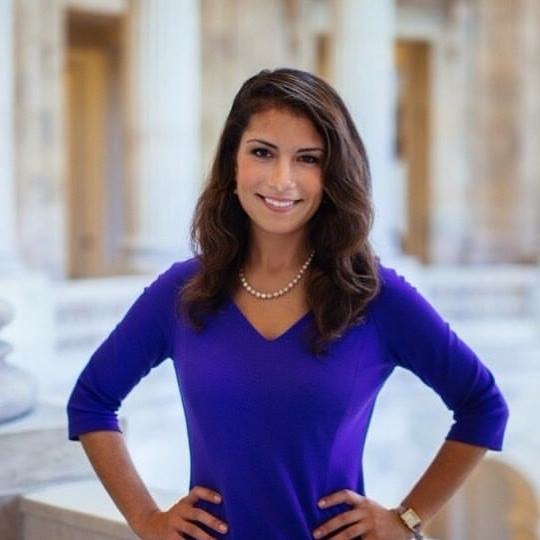 What’s Next with Nicole is a biweekly opinion column. The views expressed are solely the author’s.
What’s Next with Nicole is a biweekly opinion column. The views expressed are solely the author’s.
(Updated at 2:45 p.m.) Mental health wellness is something that has unfortunately been a scapegoat or justification for a number of policy issues to become “unfixable.”
From gun violence and suicide prevention, to long-term healthcare, to test taking and education, a binding thread is a need to focus on mental health. Without the ability to change our national system, what is it that we are doing here, and what are opportunities for improvement?
At the last Civic Federation meeting, there was a panel that focused specifically on adolescent mental health. To prepare the panel, Public Safety Chair Jackie Snelling and President Sandy Newton visited over 50 people from departments and nonprofits in the county to get a comprehensive understanding of the issue.
This included Health and Human Services, Police Crisis Intervention Team, Arlington Partnership for Children, Youth & Families, Northern Virginia Alliance on Mental Illness, school counselors, in-school and out-of-school social workers, student resource officers (SROs), and students.
In-School Resources
Right now APS has an initiative to have “one trusted adult” in each student’s life. This is undeniably important, but not all trusted adults know what to do when a child is in crisis or suffering. In-school resources are imperative to connecting services to those in need. There is an interesting dichotomy that presented itself in this discussion that came from the student on the panel.
Often teachers and SROs refer students to their counselors for help. School counselors are writing your college recommendations and recommending your coursework rigor. Students seem to feel they are not a fully trusted outlet to discuss mental health struggles because of that inherent conflict of interest.
Social workers and psychologists are generally seen as more confidential, but our ratios of students to those kind of staff are very high at 1:905, and 1:1123 in high school. While school counselor ratios are expected to be decreased to 1:350 by law via HB 1508, it will not have the same impact on social workers/psychologists, which I believe to be the bigger asset for mental health assistance in our school system. It might even be helpful to rename counselors “academic advisors” and make social workers and psychologists “counselors” to properly define their roles.
Not Enough Adolescent Beds
For those in crisis, there are not enough beds for kids (or adults for that matter). There are only 99 inpatient beds including 48 beds provided by the state for adolescents in all of Virginia. Each facility is wildly over capacity and individuals in crisis often have to wait for a bed and drive far lengths to receive services.
As we look at the Capital Improvement Plan (CIP) this year, it would be worth considering mental health beds and/or facilities as a public infrastructure need. Perhaps a one-stop-shop specifically for mental health to reduce barriers to getting help.
Comprehensive County Plan
Being able to more easily find resources in one place online is needed. Arlington has various pathways to entry into the mental health arena and services will differ depending on where you enter. I asked the panel if there was a “roadmap” to directing help and there were different answers. Finding a comprehensive plan for the various departments to present resources would be useful for public access and awareness.
Conclusion
The Arlington Community Report shows that one-third of Arlington Public School (APS) students felt sadness or hopelessness, but only a third of those students got help. Of those students, black and Asian students reported getting help at such a low number that it was unreportable or 0%. Overall a majority of children are not getting the help they need, and a large portion of our students of color are not getting any help.
Arlington County and APS do currently provide resources for childhood mental health with a multidisciplinary approach. Three improvements in recent years include same-day intake care/walk-ins for anyone 22 or under, a regional 24-hour crisis response hotline (CR2), and one full time diversion-first social worker — funded by Virginia Hospital Center — to make home service visits for the county.
What is clear though, is that our system is fragmented, and a roadmap for someone experiencing mental health problems does not exist. I hope we can target this issue in a comprehensive way moving forward instead of discussions in department silos. Easier said than done, but as anything important does, it will take leadership and funding to really make a difference.
Nicole Merlene is an Arlington native and former candidate for Virginia State Senate. She has served as a leader in the community on the boards of the Arlington County Civic Federation and North Rosslyn Civic Association, as an Arlington Economic Development commissioner, in neighborhood transportation planning groups, and as a civic liaison to the Rosslyn Business Improvement District.


